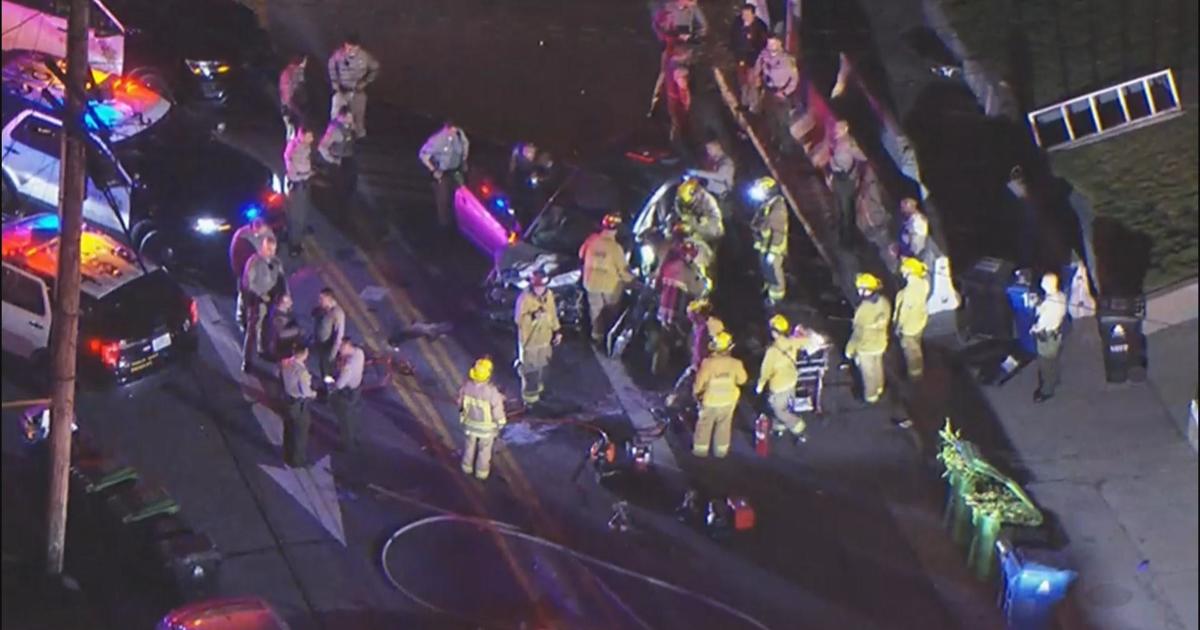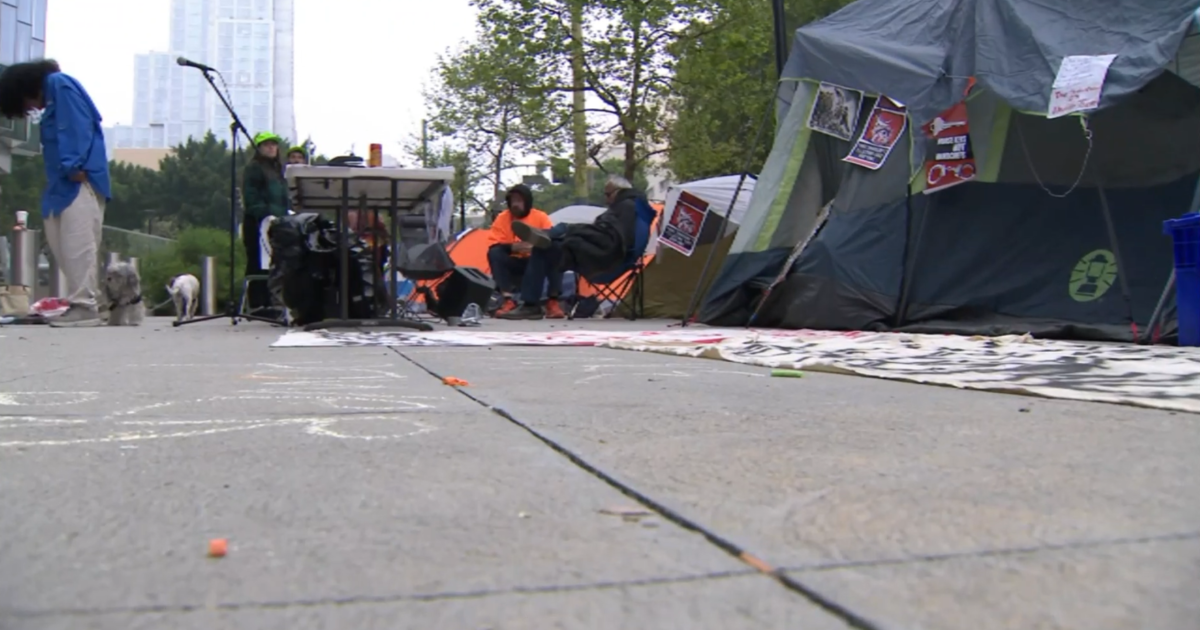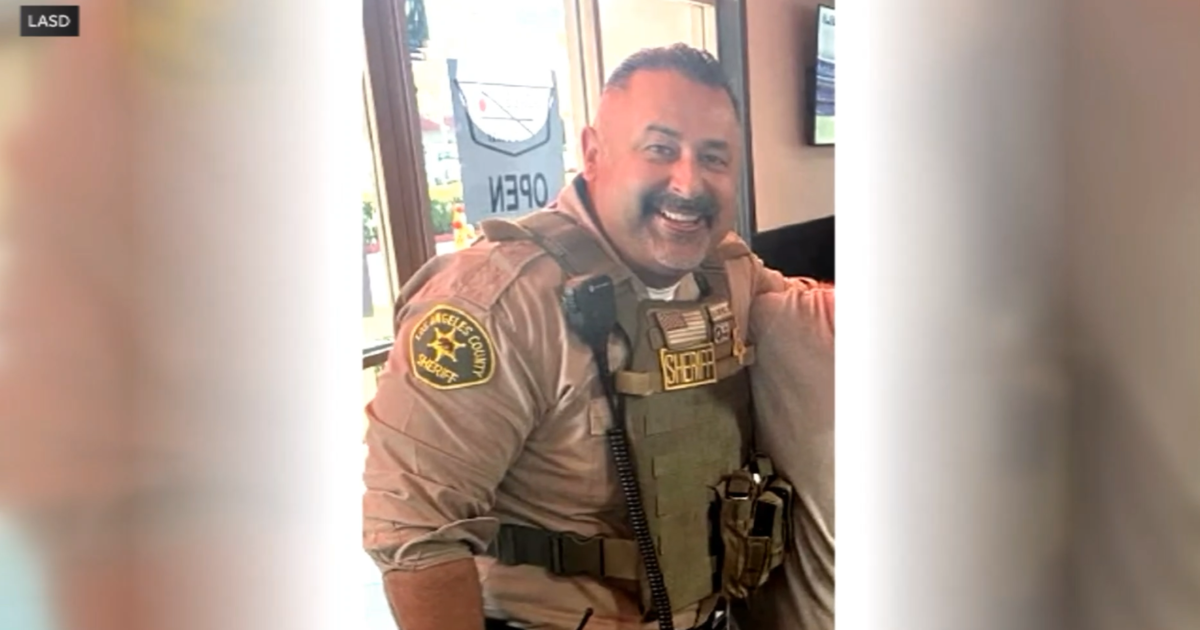LA County To End Solitary Confinement Of Juveniles
LOS ANGELES (CBSLA.com) — The Los Angeles County Board of Supervisors voted unanimously Tuesday to end the practice of solitary confinement at its three juvenile halls and 13 camps.
Supervisors Hilda Solis and Sheila Kuehl proposed the change, citing multiple studies concluding that the practice is both ineffective and harmful.
"Solitary confinement does not really do any good in the long run," Solis said.
One widely-cited 2014 study by the University of North Carolina School of Law, in conjunction with the American Civil Liberties Union of North Carolina, found that solitary confinement was a "cruel, inhuman, and degrading form of punishment that is -- or at the very least approximates -- torture."
Kuehl said juveniles placed in solitary confinement have higher recidivism rates than other juvenile offenders.
"It doesn't improve behavior. It doesn't improve public safety," Kuehl said.
The county plans to end the practice at Central Juvenile Hall, Camp McNair and Camp Scott by May 30 and at the balance of its juvenile camps and halls by Sept. 30.
"There is an urgency," Solis said, telling her colleagues about visiting a boy who was held for 24 hours in a cold, windowless cell with only a plastic-covered mattress and no pants or shoes.
Interim Probation Chief Cal Remington said he appreciated the extra time for the full roll-out, telling the board that staff safety was critical and training would take some time.
Probation is "absolutely committed to doing away with solitary confinement," Remington said.
But he worried aloud about dealing with minors when fights break out, especially when a large group of youths is involved.
Remington said there was a problem Sunday at one of the camps that involved 17 minors. One of the youths walked into a room, took off his shirt and challenged the others, according to Remington.
"There are still going to be times when we need some form of restrictive housing," the probation chief said.
The motion by Solis and Kuehl anticipates "cool-down" areas to be used when a juvenile is acting out in a way that threatens others.
"Even in such cases, the placement should be brief, designed as a `cool-down' period and done only in consultation with a mental health professional," according to the motion, which calls for "relationship-building, trauma-informed care" for juveniles.
However, "some of these incidents happen in the wink of an eye," Remington said, highlighting the challenges posed by the new procedures.
"Change is hard," Supervisor Mark Ridley-Thomas responded.
One probation officer said that violent gang rivalries among juvenile offenders posed deadly risks.
"Nobody should have to die for a paycheck," she said, recalling that a counselor was beaten to death at the Dorothy Kirby Juvenile Detention Center in 1994. "Those children have mental health services around the clock and we still had (an employee) who was brutally murdered."
But many more advocates for juvenile justice spoke out in support, with some telling stories of their own time in detention.
"Isolation is a huge detriment, not a benefit," said Stacey Cook of the Youth Justice Coalition, who works with children coming out of juvenile detention. "Hurt people hurt people."
In January, President Barack Obama barred solitary confinement in federal prison for juveniles and low-level offenders, other than in rare circumstances.
The Probation Department oversees roughly 1,200 youth at its juvenile camps and halls.
(©2016 CBS Local Media, a division of CBS Radio Inc. All Rights Reserved. This material may not be published, broadcast, rewritten, or redistributed. Wire services contributed to this report.)



